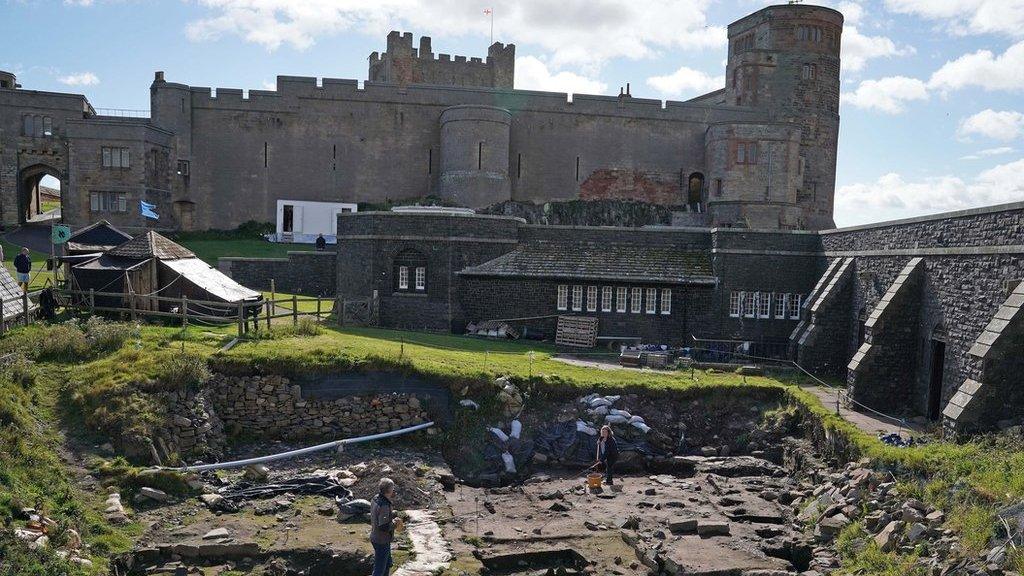High tides expose stone 'graves' at cliff collapse
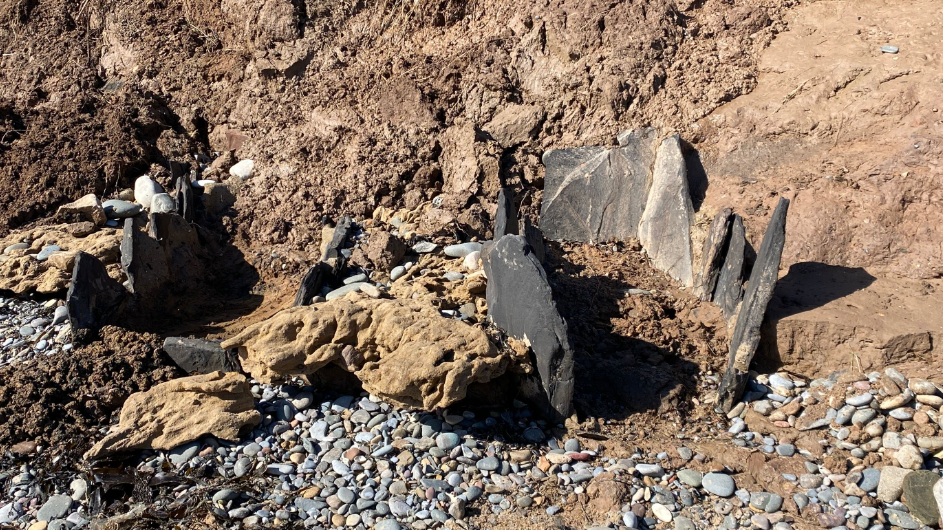
Archaeologist Dr Jane Harrison said the slab-lined structures could be Bronze Age, Viking or medieval
- Published
Two stone-lined structures thought to be graves, have been discovered after a section of cliffs collapsed in high tides.
Police were called to Foxton beach, near Alnmouth, in Northumberland, on Saturday after they were spotted by a dog walker.
Archaeologist Dr Jane Harrison said the structures were likely to be cist graves - box-like, stone coffins - which could be dated back from the Bronze Age, Viking or Medieval era.
Northumberland County Council said it was liaising with local archaeologists about the finds to decide on "the best way forward".
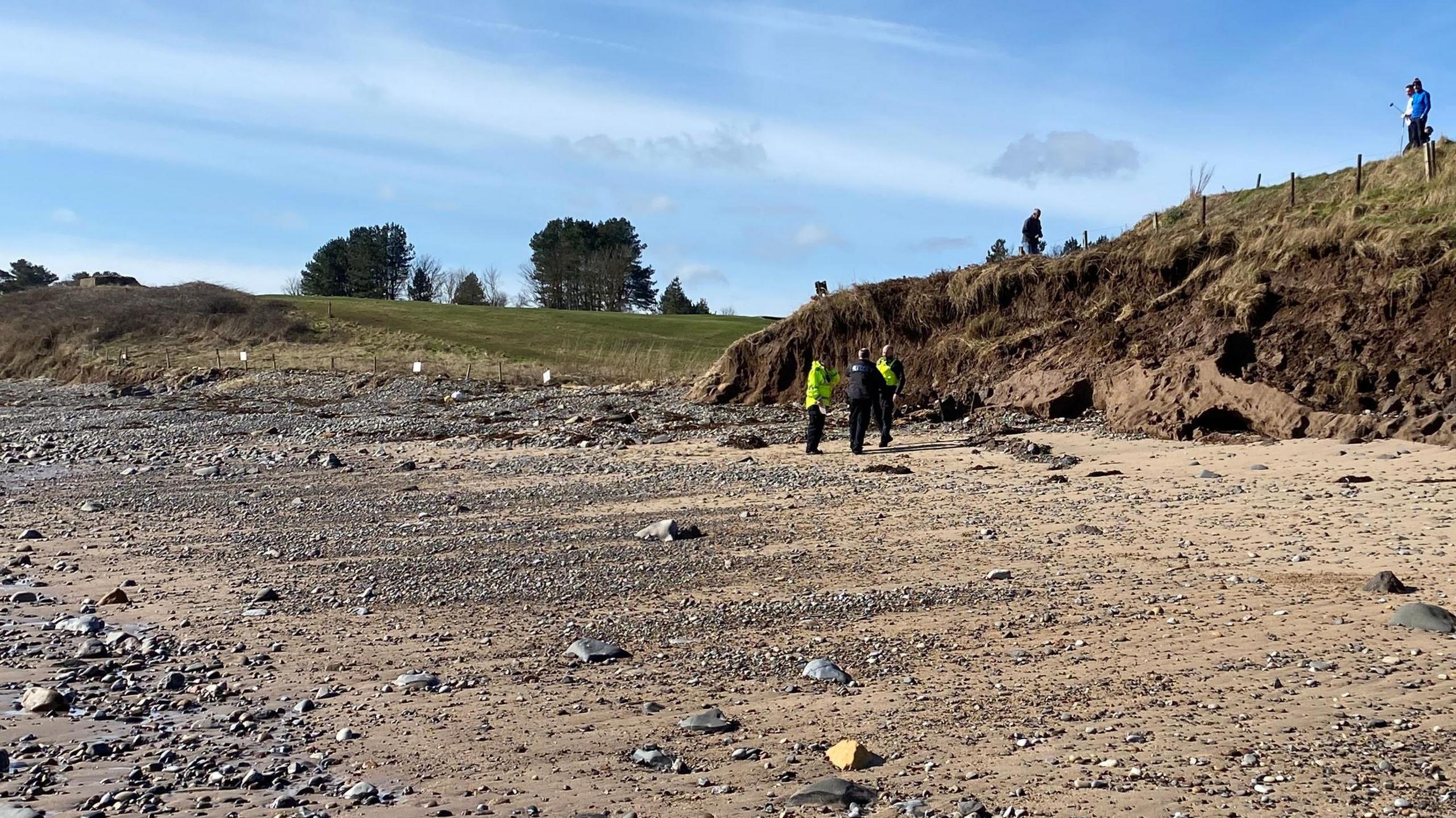
The structures appeared after a section of the cliff collapsed following a number of high tides
The structures were spotted by dog walker Craig Thompson.
"I've walked my dog on this beach every day for years, and I've never seen anything like it," he said.
"I saw them on Friday night and thought I should let the police know just in case.
"I was born and bred in Boulmer just a mile away, I fish here all the time and I've never heard any talk of graves in the cliff."
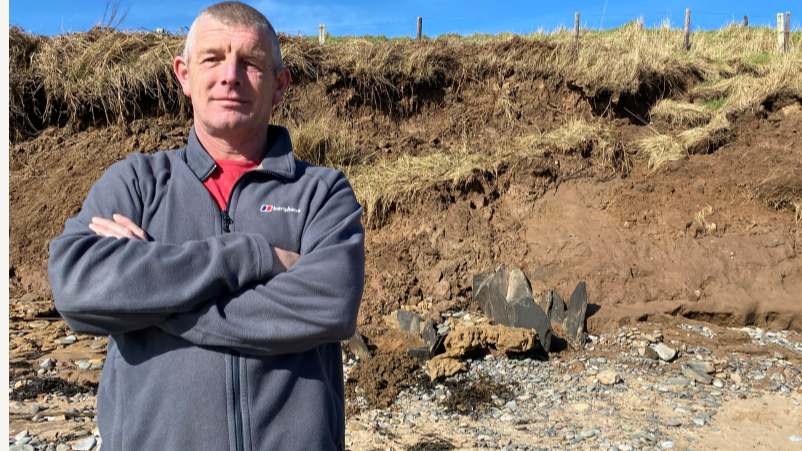
The graves were spotted by dog walker Craig Thompson who is a regular on the beach
Jim Watt who has a caravan at Seaton Point close to the find, said he believed the structures have appeared before.
"A number of years ago they were exposed by a very high tide," he said.
"But then they got buried again."
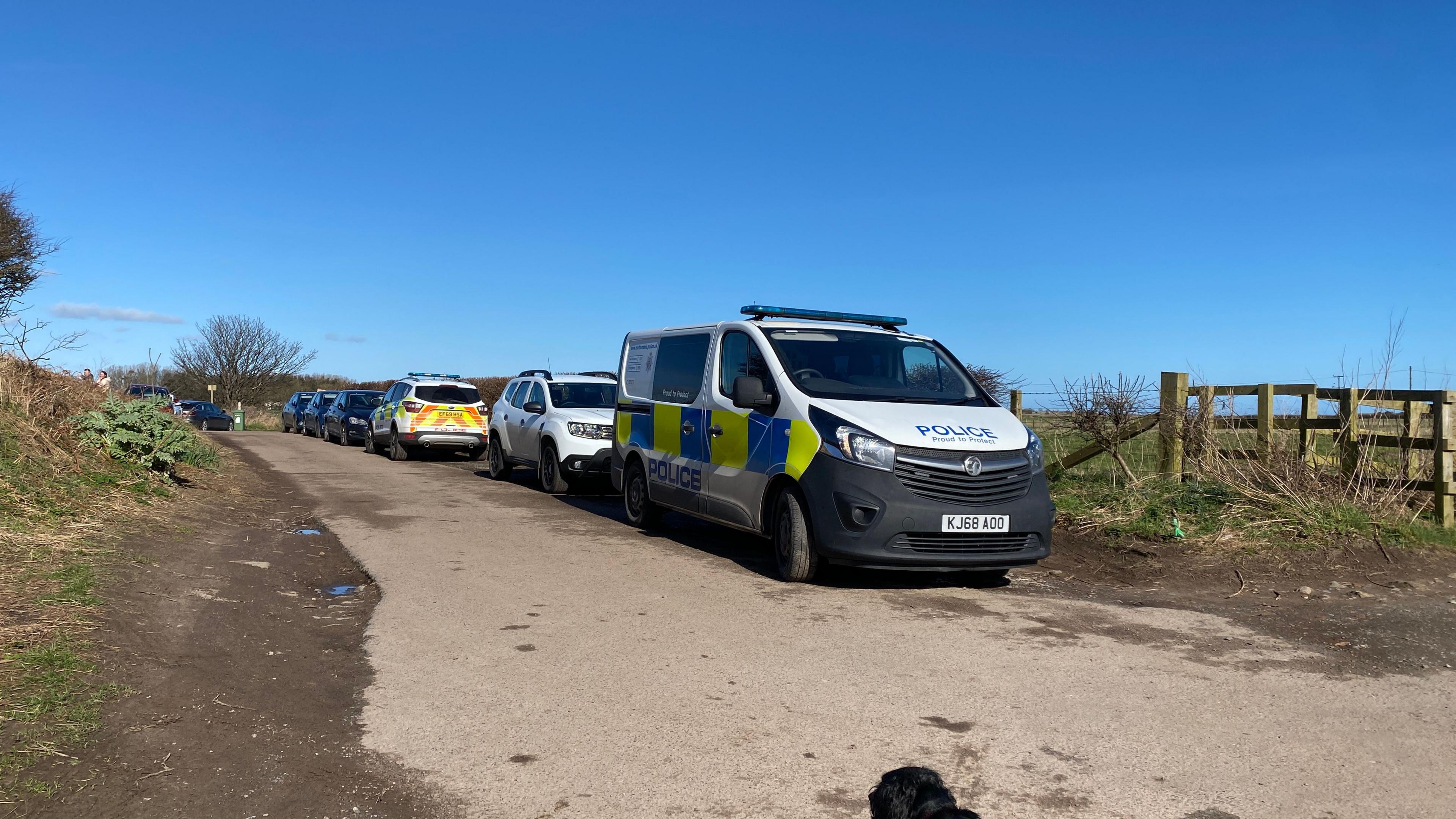
The structures were found on Saturday and the county council and police were informed
Dr Harrison added: "Cist graves can be prehistoric, especially Bronze Age, Viking or Medieval, Christian or Pagan.
"The alignment may have been twisted by collapse but if graves are positioned east to west - they are likely to be Christian."
She said the finds were made in an area "rich in archaeology."
Just four miles north at Howick, archaeologists discovered one of Britain's oldest Mesolithic huts dating from around 7800BC.
In addition, a cemetery consisting of five Bronze Age cists was found on the site.
Follow BBC North East on X (formerly Twitter), external, Facebook, external and Instagram, external. Send your story ideas to northeastandcumbria@bbc.co.uk.
Related topics
More stories from BBC North East and Cumbria
- Published1 March 2024
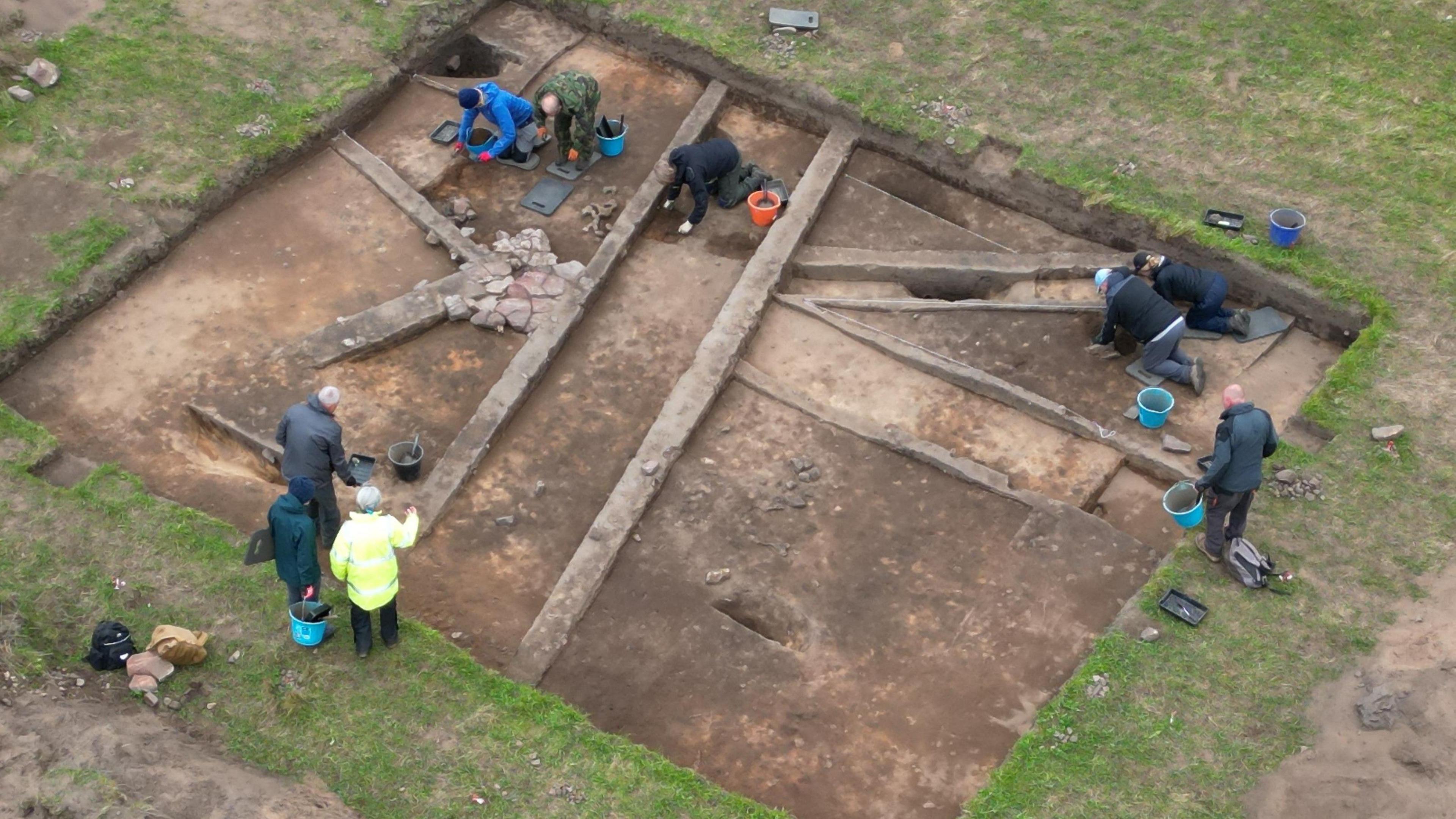
- Published10 October 2022
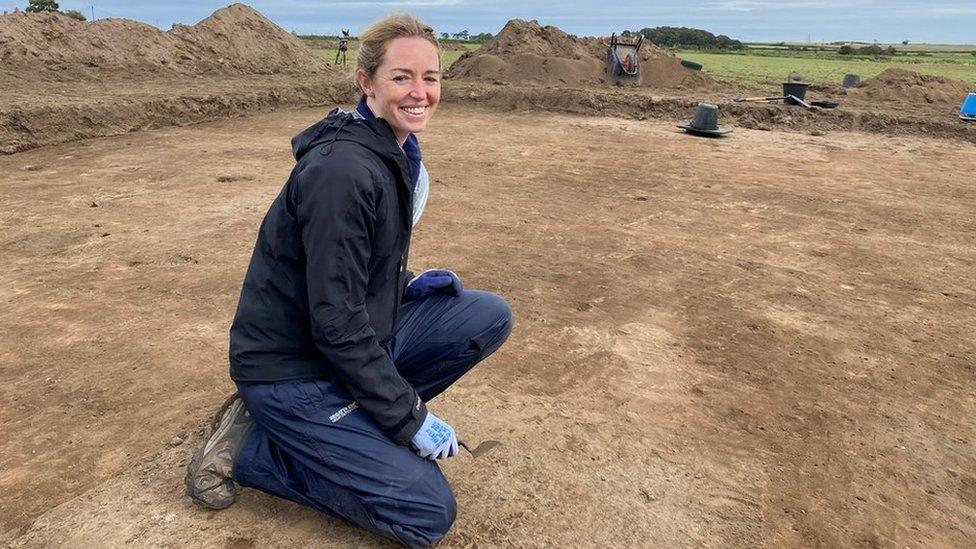
- Published9 September 2020
